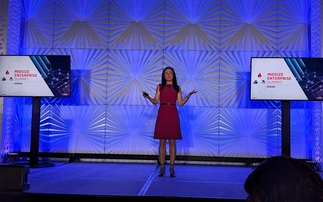CIO Connect survey finds that the role of the chief information officer is to strengthen
IT leaders are in a strong position Chief information officers' (CIOs') knowledge of both the business and IT systems puts them in a strong position to help their employers adapt and survive in t...
To continue reading this article...
Join Computing
- Unlimited access to real-time news, analysis and opinion from the technology industry
- Receive important and breaking news in our daily newsletter
- Be the first to hear about our events and awards programmes
- Join live member only interviews with IT leaders at the ‘IT Lounge’; your chance to ask your burning tech questions and have them answered
- Access to the Computing Delta hub providing market intelligence and research
- Receive our members-only newsletter with exclusive opinion pieces from senior IT Leaders

















